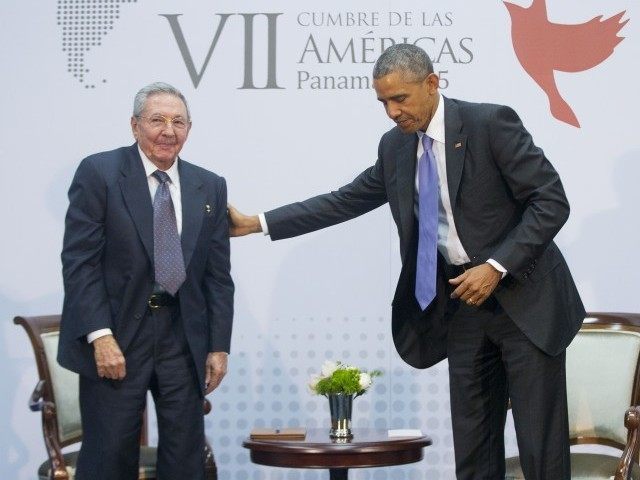The State Department announced this week that it has received a guarantee from the Cuban government to enter a bilateral dialogue to discuss the extradition of American fugitives out of Cuba to serve their criminal sentences, as well as dialogue with Spain regarding Cuba providing safe haven to members of the Basque terrorist group ETA. The Cuban government has yet to publicly comment on the State Department’s claims.
The Associated Press reports that State Department spokesman Jeff Rathke confirmed to the media that Cuba has agreed to talks regarding a number of fugitives who have been living on the island, having been granted “political asylum” after being sentenced to extended prison terms in the United States for violent crime. Most prominent among them is Joanne Chesimard, a Black Panther member who escaped a prison cell in New Jersey in 1979 after being convicted and sentenced in the killing of a New Jersey State Trooper. Both Governor Chris Christie and congressional representatives from the state have called for President Obama to press Cuba on returning her to justice.
In a statement on Thursday, Rathke said:
We see the reestablishment of diplomatic relations and the reopening of an embassy in Havana as the means by which we’ll be able, more effectively, to press the Cuban government on law enforcement issues such as fugitives. And Cuba has agreed to enter into a law enforcement dialogue with the United States that will work to resolve these cases.
Rathke also claimed that Cuba had agreed to bilateral talks with Spain regarding fugitives granted political asylum who had participated in terrorist activities with the ETA Basque group. “The Cuban government has provided assurances that it would never permit the ETA members living in Cuba to use Cuban territory for activities against Spain or any other country,” Rathke claimed, though he did not provide more specifics on the matter. He added that “Cuba and Spain have agreed to a bilateral process” regarding ETA terrorists and that “the government of Spain has assured the government of the United States that it is satisfied with this process.”
Noticeably absent from the aftermath of Rathke’s comments has been any corresponding comment from the Cuban government. The Associated Press notes that Cuba’s Foreign Ministry did not respond to a request for comment. On Cuba’s state media website, Granma, the latest article on relations with the United States does not make any mention of terrorists being harbored in Cuba, instead highlighting comments President Obama made during the Summit of the Americas in which he claimed that the United States “has not been consistent” and that “there are dark chapters in our history, in which we have not abided by the principles on which our nation was founded.”
Cuba’s top diplomat for American affairs, Josefina Vidal, had previously stated that any changes on Cuba’s behalf proposed during the talks would be disregarded, as changes are “non-negotiable.” In a speech following President Obama’s initial announcement of a change in diplomacy with Cuba, dictator Raúl Castro stated that he would offer the United States “nothing in return” during negotiations.
Despite these overt signs that no concessions would change the Cuban government’s attitude regarding its unsavory activities, both domestically and internationally, President Obama announced that Cuba would be removed from the State Department’s state sponsors of terrorism list as soon as possible this week. Cuba had been placed on the list for its ties to both the ETA and the Revolutionary Armed Forces of Colombia (FARC), whose leadership continues to operate out of Havana. This week, FARC terrorists broke a ceasefire brokered in Havana with the Colombian government with an attack that killed 11 Colombian soldiers and has undone negotiations ongoing in Cuba since 2012.

COMMENTS
Please let us know if you're having issues with commenting.